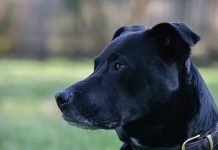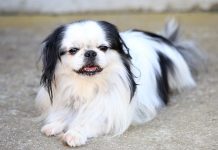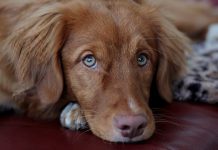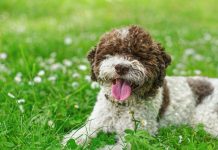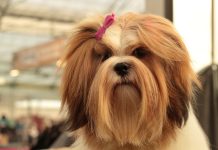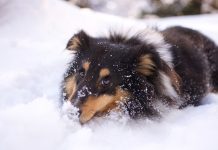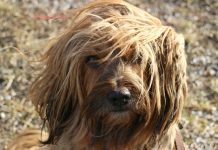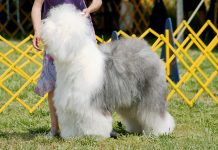History and Origins of the Greater Swiss Mountain Dog:
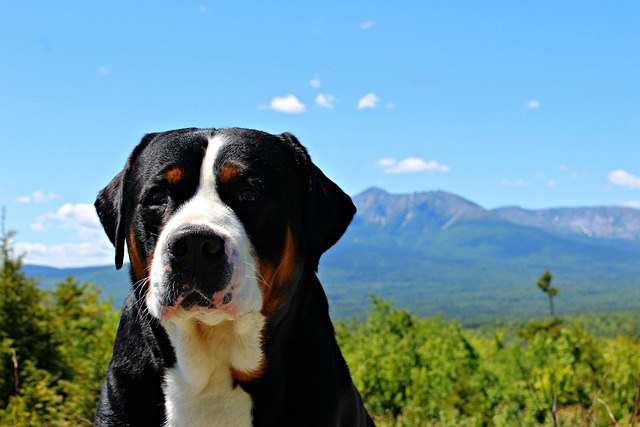
- Ancient Heritage: The Greater Swiss Mountain Dog is one of the oldest Swiss mountain dog breeds, tracing its roots back to ancient times. They are believed to be descendants of large Mastiff-type dogs brought to Switzerland by the Romans over 2,000 years ago.
- Working Dogs: Historically, Greater Swiss Mountain Dogs were versatile working dogs used by Swiss farmers and herdsmen for various tasks, including herding livestock, guarding property, and pulling carts. They were highly valued for their strength, endurance, and reliability.
- Near Extinction: By the late 19th century, the breed had declined in numbers due to changes in agriculture and the introduction of mechanized farming methods. They were on the verge of extinction until efforts were made to revive and preserve the breed.
- Breed Recognition: The Greater Swiss Mountain Dog was officially recognized as a distinct breed by the Swiss Kennel Club in 1908. They were later introduced to the United States in the 1960s and gained recognition by the American Kennel Club (AKC) in 1995.
Physical Characteristics and Appearance of Greater Swiss Mountain Dogs:
- Size: Greater Swiss Mountain Dogs are large and robust dogs with a sturdy build. Adult males typically stand between 25.5 to 28.5 inches (65-72 cm) at the shoulder, while females are slightly smaller, ranging from 23.5 to 27 inches (60-68 cm). They usually weigh between 85 to 140 pounds (38-64 kg).
- Coat: Swissies have a short, dense double coat that is straight and weather-resistant. The coat color is predominantly tri-colored, consisting of a black base with rust and white markings. They have distinctive symmetrical white markings on the face, chest, legs, and tail tip.
- Head: The head of a Greater Swiss Mountain Dog is broad and proportionate to the body, with a slightly rounded skull. They have a strong, straight muzzle and a black nose.
- Eyes: Swissies have medium-sized, almond-shaped eyes that are dark brown in color. Their expression is gentle, alert, and intelligent.
- Ears: The ears are medium-sized, triangular in shape, and set high on the head. They fold forward when alert.
- Body: Greater Swiss Mountain Dogs have a well-balanced and muscular body with a deep chest and strong, straight legs. The back is broad and level, leading to a powerful hindquarters.
- Tail: Swissies have a thick, tapered tail that reaches to the hocks. The tail is carried low when at rest and raised in a gentle curve when alert.
- Movement: Greater Swiss Mountain Dogs have a smooth and efficient gait, covering ground with a powerful and effortless stride. They are agile for their size and exhibit grace and balance in movement.
In summary, the Greater Swiss Mountain Dog is a striking and impressive breed known for its strength, agility, and gentle temperament. They make excellent family companions and are well-suited for various activities, including obedience, carting, and even therapy work. Their rich history as a working breed in the Swiss Alps has contributed to their robust physique and reliable nature. If you’re considering adding a Greater Swiss Mountain Dog to your family, be prepared for a loyal and affectionate companion with a distinctive appearance and a proud heritage.
Temperament and Personality Traits:
- Friendly and Affectionate: Greater Swiss Mountain Dogs are loving and affectionate companions. They are known for their gentle demeanor and strong bond with their families. Swissies are excellent with children and often display a patient and tolerant attitude.
- Loyal and Protective: Swissys are naturally protective of their families and can be reserved around strangers. They make reliable watchdogs and will alert their owners to any unusual activity.
- Confident and Even-Tempered: Greater Swiss Mountain Dogs are confident and well-balanced dogs. They are not easily spooked and can handle various situations with composure.
- Social: Properly socialized Swissies are friendly towards other dogs and pets. Early socialization is important to ensure they grow up to be well-adjusted and comfortable in different environments.
- Energetic and Playful: Despite their large size, Greater Swiss Mountain Dogs are playful and enjoy interactive activities with their family members. They benefit from regular exercise and mental stimulation.
- Intelligent and Willing to Please: Swissys are intelligent dogs that respond well to training. They are eager to please their owners and enjoy learning new commands and tricks.
- Moderate Energy Level: Greater Swiss Mountain Dogs have a moderate energy level. They are not as hyperactive as some other breeds but still require daily exercise to stay healthy and happy.
- Adaptable: Swissies are adaptable dogs that can thrive in various living situations, including apartments (with sufficient exercise) or larger homes with yards. They are versatile companions for active individuals and families.
Training and Socialization Needs:
- Early Socialization: Start socializing your Greater Swiss Mountain Dog puppy early to expose them to different people, animals, and environments. This helps prevent shyness or fearfulness as they mature.
- Positive Reinforcement Training: Swissys respond best to positive reinforcement training methods, including treats, praise, and rewards. They can be sensitive to harsh correction, so gentle and consistent training is recommended.
- Basic Obedience Training: Teach your Swissy basic obedience commands such as sit, stay, come, and leash walking. Consistent training builds trust and strengthens the bond between you and your dog.
- Exercise Requirements: Provide regular exercise for your Greater Swiss Mountain Dog to keep them physically and mentally stimulated. Daily walks, playtime, and activities such as hiking or swimming are ideal.
- Leash Training: Due to their size and strength, leash training is important for Swissies. Teach them to walk politely on a leash to prevent pulling and ensure control during walks.
- Social Interaction: Expose your Swissy to different people, dogs, and environments to help them develop into confident and well-socialized adults. Dog parks, obedience classes, and supervised playdates are beneficial.
- Consistent Leadership: Establish yourself as a calm and confident leader for your Greater Swiss Mountain Dog. Consistent rules and boundaries help them feel secure and well-behaved.
By providing proper training, socialization, and plenty of love and attention, your Greater Swiss Mountain Dog will grow into a well-mannered and beloved family companion. They thrive on companionship and enjoy being part of daily activities with their owners. With patience and dedication, you’ll have a loyal and gentle giant by your side for many years to come.
Health Considerations and Common Issues:
- Hip Dysplasia: Greater Swiss Mountain Dogs can be prone to hip dysplasia, a genetic condition where the hip joint doesn’t develop properly. This can lead to arthritis and mobility issues. Responsible breeders screen for hip dysplasia before breeding.
- Elbow Dysplasia: Similarly, elbow dysplasia is a common orthopedic problem in Swissies. It involves abnormal development of the elbow joint and can cause lameness and pain.
- Gastric Dilatation-Volvulus (Bloat): This is a serious and potentially life-threatening condition that affects deep-chested breeds like Greater Swiss Mountain Dogs. Bloat occurs when the stomach fills with gas and twists. Immediate veterinary attention is required if bloat is suspected.
- Entropion: Some Swissies may be prone to entropion, a condition where the eyelids roll inward, causing irritation and potential eye damage. Surgical correction may be necessary.
- Epilepsy: Epilepsy, a neurological disorder characterized by seizures, can occur in Greater Swiss Mountain Dogs. Medication can help manage seizures in affected dogs.
- Panosteitis: This is a condition that affects the long bones of young, growing dogs, causing lameness and pain. It usually resolves with proper rest and management.
- Growth-Related Disorders: Swissies grow rapidly during their puppyhood, which can lead to growth-related orthopedic issues such as hypertrophic osteodystrophy (HOD) or osteochondritis dissecans (OCD).
- Obesity: Due to their large size and appetite, Greater Swiss Mountain Dogs are prone to obesity if not fed a balanced diet and provided with regular exercise.
Living with a Greater Swiss Mountain Dog: Suitable Environments and Lifestyle Considerations:
- Spacious Living Area: Swissies are large dogs and require sufficient space to move around comfortably. A house with a fenced yard is ideal to accommodate their size and energy levels.
- Daily Exercise: Greater Swiss Mountain Dogs benefit from regular exercise to maintain their physical and mental well-being. Daily walks, playtime, and activities such as hiking or swimming are recommended.
- Climate Considerations: Swissies have a thick double coat and may not tolerate hot weather well. Provide shade and access to fresh water during warm months, and avoid prolonged exposure to heat.
- Socialization and Training: Early socialization is important to help Swissies develop into well-adjusted and confident dogs. Positive reinforcement training methods are effective for teaching obedience and manners.
- Regular Veterinary Care: Schedule regular veterinary check-ups, vaccinations, and preventive care for your Greater Swiss Mountain Dog. Early detection of health issues can lead to better outcomes.
- Nutrition: Feed your Swissy a high-quality diet formulated for large breeds to support their growth and overall health. Avoid overfeeding and monitor their weight to prevent obesity.
- Grooming: Swissies have a short, dense coat that requires regular brushing to remove loose hair and prevent mats. They shed seasonally and may need more frequent grooming during shedding periods.
- Family Companionship: Greater Swiss Mountain Dogs thrive on companionship and enjoy being part of family activities. They are loyal and affectionate dogs that form strong bonds with their owners.
By providing a loving and attentive environment, regular veterinary care, proper nutrition, and adequate exercise and socialization, your Greater Swiss Mountain Dog will thrive and bring joy to your household. Understanding their unique health considerations and adapting their lifestyle accordingly will contribute to a long and happy life for your Swissy companion.
Greater Swiss Mountain Dog Variations and Breeding Practices
The Greater Swiss Mountain Dog, while a distinctive breed with a defined standard, does not have recognized variations or different “types” within the breed like some other breeds might. However, responsible breeding practices are crucial for maintaining the health, temperament, and conformation of Greater Swiss Mountain Dogs. Here are insights into breeding practices and considerations for this wonderful breed:
Breeding Practices for Greater Swiss Mountain Dogs:
- Health Testing: Ethical breeders prioritize the health of their Greater Swiss Mountain Dogs and conduct appropriate health screenings before breeding. This includes testing for hip dysplasia, elbow dysplasia, cardiac evaluations, and other genetic conditions that may affect the breed.
- Selection of Breeding Stock: Responsible breeders carefully select breeding pairs based on health, temperament, and adherence to the breed standard. They aim to produce puppies with desirable traits and minimize the risk of passing on hereditary health issues.
- Genetic Diversity: Maintaining genetic diversity is important in Greater Swiss Mountain Dog breeding to reduce the incidence of inherited disorders. Responsible breeders avoid excessive inbreeding and work to preserve the genetic health of the breed.
- Conformation to Breed Standard: Breeders adhere to the breed standard set by kennel clubs such as the American Kennel Club (AKC) or the Fédération Cynologique Internationale (FCI). This standard specifies the ideal physical characteristics, including size, coat color, ear shape, tail carriage, and overall appearance of the breed.
- Temperament and Behavior: Ethical breeders prioritize breeding Greater Swiss Mountain Dogs with stable and well-balanced temperaments. They aim to produce puppies that are friendly, sociable, and adaptable to various environments.
- Health Guarantees: Reputable breeders provide health guarantees for their puppies and offer support and guidance to new owners. They are committed to the well-being of their dogs throughout their lives.
- Ethical Practices: Responsible breeders follow ethical guidelines and best practices in all aspects of breeding, including proper care, socialization, and responsible placement of puppies in suitable homes.
Finding a Reputable Greater Swiss Mountain Dog Breeder:

When looking for a Greater Swiss Mountain Dog puppy, it’s important to choose a reputable breeder who follows ethical breeding practices. Here are some tips for finding a responsible Greater Swiss Mountain Dog breeder:
- Research: Use reputable sources such as national breed clubs, kennel clubs, and referrals from other Greater Swiss Mountain Dog owners to identify reputable breeders.
- Visit in Person: Arrange to visit the breeder’s facility to meet the parent dogs and observe their living conditions. A responsible breeder will welcome your visit and answer your questions.
- Health Screening: Inquire about health testing conducted on the parent dogs and ask to see the results. Ensure that the breeder prioritizes health and genetic diversity in their breeding program.
- Ask Questions: Don’t hesitate to ask the breeder about their breeding practices, experience, and involvement in the Greater Swiss Mountain Dog community.
- References: Request references from previous puppy buyers to learn about their experiences with the breeder and the health and temperament of their Greater Swiss Mountain Dogs.
By working with a reputable Greater Swiss Mountain Dog breeder who prioritizes health, temperament, and ethical breeding practices, you can ensure that you are welcoming a healthy and well-adjusted puppy into your family. Responsible breeding practices contribute to the preservation and improvement of the Greater Swiss Mountain Dog breed, ensuring that future generations of Swissies embody the breed’s unique qualities and characteristics.
50 Best Names with Meanings for Greater Swiss Mountain Dogs
Choosing the perfect name for your Greater Swiss Mountain Dog can be a fun and meaningful process. Here are 50 great names with meanings that could be ideal for your strong and lovable Swissy companion:
Male Names:
- Max – Short for Maximus, meaning “greatest.”
- Thor – Norse god of thunder and strength.
- Bruno – Means “brown” in German, fitting for the breed’s coat color.
- Axel – Means “father of peace,” reflecting the breed’s calm temperament.
- Leo – Latin for “lion,” symbolizing strength and courage.
- Gunner – A name representing power and prowess.
- Hugo – Means “mind” or “intellect.”
- Rocco – Means “rest” or “to calm.”
- Felix – Latin for “happy” or “lucky.”
- Viggo – Scandinavian name meaning “war” or “battle.”
Female Names:
- Luna – Latin for “moon,” symbolizing grace and beauty.
- Stella – Means “star,” reflecting brightness and charm.
- Mia – Scandinavian name meaning “mine” or “beloved.”
- Zara – Arabic name meaning “princess.”
- Astra – Latin for “star,” representing elegance.
- Cleo – Short for Cleopatra, symbolizing regal charm.
- Nova – Latin for “new,” symbolizing energy and vitality.
- Lola – Means “strong woman.”
- Greta – German name meaning “pearl.”
- Ivy – A symbol of strength and determination.
Strong and Noble Names:
- Ajax – Greek hero known for his strength and courage.
- Bane – Represents strength and resilience.
- Juno – Roman goddess, symbolizing loyalty and protection.
- Atlas – Represents endurance and strength.
- Zeus – King of the gods in Greek mythology, symbolizing power.
- Athena – Greek goddess of wisdom and warfare.
- Kai – Hawaiian name meaning “strong” or “sea.”
- Noble – A name reflecting dignity and honor.
- Goliath – Represents size and strength.
- Mars – Roman god of war, symbolizing bravery.
Unique and Powerful Names:
- Bodhi – Sanskrit for “enlightenment” or “awakening.”
- Zephyr – Greek god of the west wind.
- Koda – Means “friend” in Native American.
- Echo – Symbolizes sound and communication.
- Ragnar – Norse name meaning “warrior” or “judgment.”
- Phantom – Represents mystery and strength.
- Blaze – Symbolizes intensity and passion.
- Jett – Means “black gemstone.”
- Kona – Hawaiian name meaning “lady.”
- Arrow – Represents speed and accuracy.
Elegant and Classic Names:
- Oliver – Means “olive tree,” symbolizing peace and wisdom.
- Amelia – Means “industrious” or “striving.”
- Theo – Short for Theodore, meaning “gift of God.”
- Aurora – Latin for “dawn,” symbolizing new beginnings.
- Eva – Hebrew name meaning “life” or “living one.”
- Lara – Means “cheerful” or “light-hearted.”
- Silas – Means “of the forest.”
- Elara – Greek name associated with the moon.
- Cyrus – Persian name meaning “sun” or “throne.”
- Isolde – Celtic name meaning “beautiful lady.”
Choose a name that resonates with you and reflects your Greater Swiss Mountain Dog’s personality, strength, and charm. Whether you prefer strong and noble names, elegant and classic names, or unique and powerful names, these options should inspire you to find the perfect name for your beloved Swissy companion!

In summary, this guide has provided a comprehensive overview of Greater Swiss Mountain Dogs, highlighting their unique breed characteristics and essential care considerations. Throughout our exploration, we’ve delved into the history, distinctive traits, and important aspects of owning a Greater Swiss Mountain Dog.
Greater Swiss Mountain Dogs are known for their large size, strength, and gentle temperament. They are loyal, sociable companions that thrive in active households and enjoy participating in family activities. Regular exercise, training, and socialization are important to keep them mentally and physically stimulated.
As you embark on your journey with a Greater Swiss Mountain Dog, it’s important to provide them with proper training, leadership, and positive reinforcement. They are intelligent dogs that respond well to consistent, gentle guidance.
With patience and dedication, Greater Swiss Mountain Dogs can make excellent companions for experienced dog owners who appreciate their protective nature and affectionate demeanor. Remember to consult with veterinarians and experienced breeders for specific guidance tailored to your Greater Swiss Mountain Dog’s individual needs. By understanding and meeting their needs, you’ll create lasting bonds and enjoy a fulfilling companionship with this wonderful breed.






